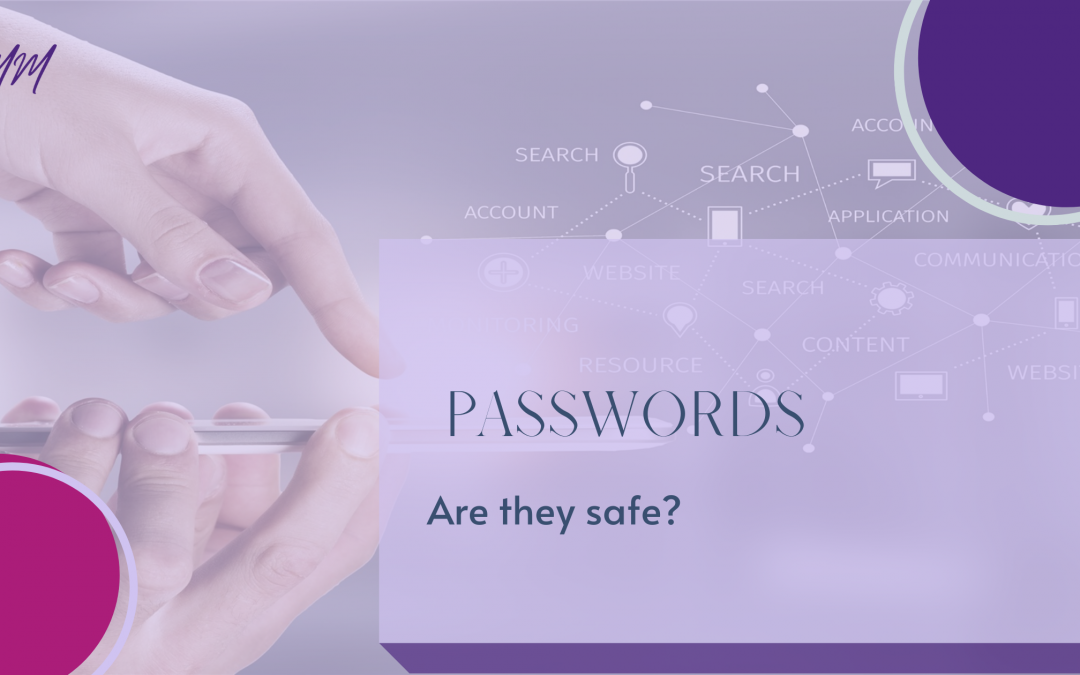Many people think of passwords simply as a nuisance, a barrier between us and trying to access the websites and services we need.
On the other hand, some go the extra mile in creating passwords that are as strong as possible. This can be done by utilising a range of features to keep the accounts safe and secure for us to use for both business or otherwise.
One approach is definitely better than the other…
Understanding what makes a strong password is essential to protect our data. They are the first line of defence against unauthorised access. However, research clearly shows we don’t always use secure ones.
Reasons for this vary. Many think a short or straightforward password is easier to remember, and having that same password for a range of sites and services can save time.
They are, and they can, but from a security point of view, doing so is a risk that is not worth taking…
Here are some top tips to help you stay secure:
Switch on password protection or other authentication method
If your device has the capability, please use it.
Passcodes and passwords are the first line of defence for stolen or lost devices. Biometrics have made this process even easier, with features such as fingerprints and facial recognition. It is a fast and highly secure way to unlock your device.
Use two-way authentication
Multi-factor authentication is a method in which the user is only given access to a website or service after presenting two (or sometimes more) pieces of evidence that they are who they claim to be.
So, for example, after entering a password and username, you might be sent a text message to your registered mobile device, email address or other authentication app or token. That message will be a code to be entered at the next stage to guarantee you are you!
Password management
Many are tempted to avoid longer alpha-numeric passwords, as they are difficult to remember and time-consuming to enter.
Password management applications solve that issue by storing the passwords securely for you (they can even create them, too) and entering them on your behalf when you need to.
This feature is baked into IOS devices, Google Chrome and Microsoft’s Authenticator app. There are also password managers such as LastPass, which store encrypted passwords online.
Don’t be ‘password predictable’
This is by far one of the most significant challenges to overall security online. Scammers, hackers and other cybercriminals are well aware of this fact. It doesn’t always take computing power, just a little background information.
Birthdays, favourite places and pet’s names can all be easily ascertained via social media profiles. When you add in the usual common passwords some of us tend to choose, it isn’t difficult to see why anyone looking to trick their way into your accounts can have a massive range of password options to try.
Many cyber criminals instead use computing power in what are known as ‘brute force’ attacks to guess passwords with the help of automated software repeatedly. It is simple for the cybercriminal but potentially devastating for you or your business.
Here are some ways to avoid being ‘password predictable’:
- Always avoid using predictable passwords
- Try choosing three random words, but swap out certain letters for symbols, so for example Troutclocklight could be tr0utCl0ckl1&ht
- Have your own rule for what letters you take out, what you replace them with and what you capitalise
1t 15n’t t00 d1ff1cU7t, and it is A LOT more secure…
If you need help or advice on making your business be data savvy, why not book a free clarity call? It might just save you time, stress and money in the future!

